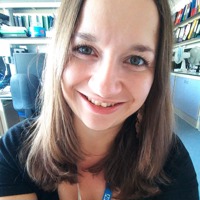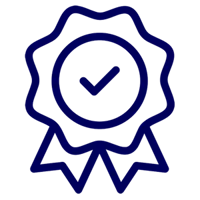
Trainee Clinical Scientist in Cancer Genomics at NHS
Don't be afraid to dream big and keep your mind open to opportunities. Even the most unlikely dreams can come true, all you need is to believe in yourself!
About Natalia...
Who am I?
"Although my personality types may not be the ones to expect in a scientist, I think they reflect well me as a person and the role that I see myself play at work. Coach: Being creative and communicating well with people are both very important traits for any scientist. We work in teams and we have to be able to clearly communicate our findings and any issues that we're facing in the lab to others. We need to keep an open mind and be able to quickly think of solutions to problems to make sure that we can deliver best quality service to all NHS patients.Developer: Being a scientist is all about improving things and finding new solutions to problems. In order to be able to do that, we need to have an inquisitive mind, be able to research the relevant information, communicate with other scientists and healthcare professionals and be persistent when things don't work the first time.Manager: Clinical scientists often have to act as managers in the hospital laboratory. They are responsible for all the laboratory work performed by their scientific team and need to ensure that the results delivered to doctors are correct and reliable. This means that they need to be very organised and communicate well with their colleagues, as well as to be able to keep calm and make decisions if things don't go according to plan.Hopefully this shows that being a good scientist is not at all just about being good at maths and biology!"
What do I do?
"At the moment I am training to be a clinical scientist at the haemato-oncology diagnostic department of the Addenbrookes hospital in Cambridge. In order to get registered as a clinical scientist I need to learn about the a variety of things that a clinical scientist may face in their day-to-day work. On some days I get to train in the practical aspects of laboratory work such as setting up tests to identify specific genetic changes in cancer patients, preparing reagents and maintaining equipment. On other days I get trained in how we analyse and interpret the test results, as well as how we report them to doctors so that the patients can receive the most suitable treatment.Aside from that, we also have regular educational meetings where we can keep up to date with our knowledge and learn from each others experiences. Sometimes we get to go to participate in public engagement events such as science festivals and speak to public about science and our work.Being a scientist also involves a surprising amount of paperwork as we have to keep a detailed record of everything we do, write reports, protocols and validation documents - this helps to ensure that all our work meets national quality standards, is performed safely and accurately."
How did I get here?
"My first degree was actually in chemistry but I always had a great interest in biology and I tried to incorporate that into my degree by picking some additional biology-focused modules such as biochemistry, physiology and genetics. I studied at the Heriot-Watt University in Edinburgh but my university had a partnership with Australian National University so I spent one year of my course there. I also completed two summer internships in different labs to gain some additional practical experience of different areas of science - I highly recommend this, it really helps to widen your horizons and stand out from other candidates when looking for jobs!After finishing my first degree I completed a PhD in biological chemistry. Again, I managed to combine the two subjects by studying biomolecules (proteins and sugars) using chemical methods (NMR spectroscopy). So there's a lot of flexibility in science if you're interested in more than one thing! "
The life I live
"When I'm not at work, I like to take day trips or long walks - I love nature and exploring new places.I'm a musician as well as scientist - I play violin and teach it to beginner players. I love doing this as it helps me to relax and forget about all the work I have to do!I also love jigsaw puzzles - this seems to be a common trait of many scientists. Maybe you like them too?"
My typical day
"My days vary greatly from each other. Some days I am stuck in front of a computer studying patient cases and writing up my learning portfolio. On some days I get to do practical work - I prepare patient samples and set up tests. Last week I had to spend some time in a dark room looking for fluorescent DNA probes under the microscope."
My qualifications
"Chemistry Degree, and a PhD in Biological Chemistry."



